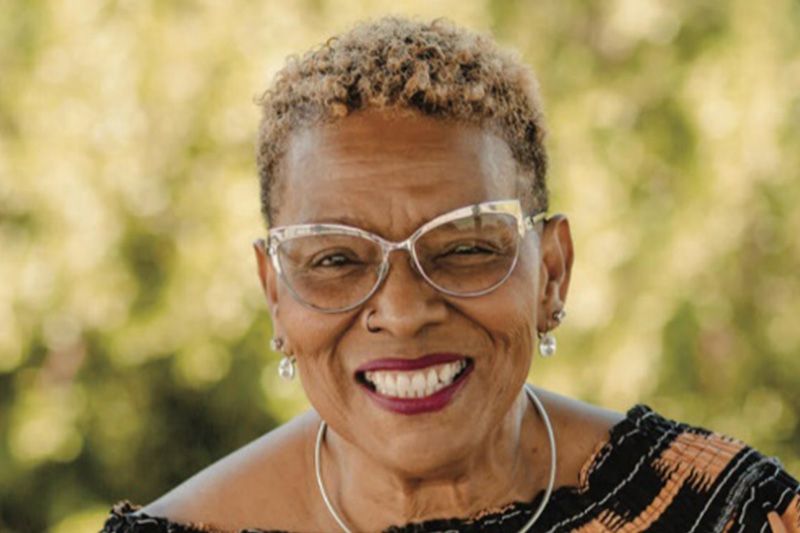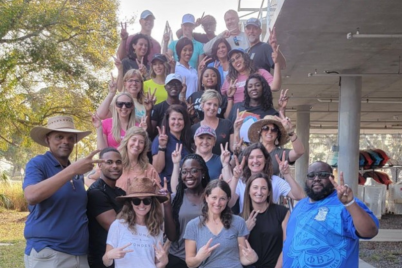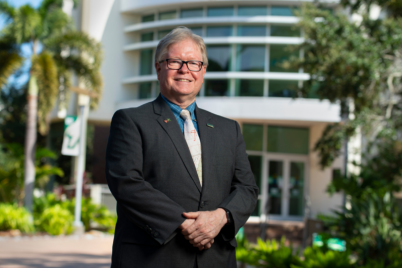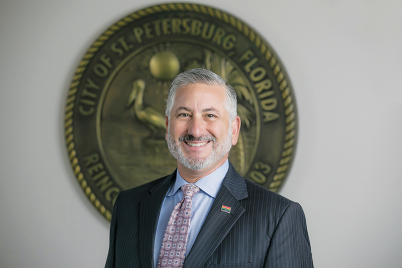African American Heritage Association President Gwendolyn Reese
BY NICOLE SLAUGHTER GRAHAM, Staff Writer
ST. PETERSBURG — As COVID-19 vaccination distribution ramps up in Florida and all across the country, some still have their reservations about receiving the shot.
A recent UC Davis report estimated that a third of all Americans are still hesitant about the safety and effectiveness of the vaccine.
Even though Black, Hispanic and Native Americans have much higher rates of hospitalization and death from COVID-19 — three to four times than of whites — the African-American community is still one of the groups most hesitant about receiving the shot.
Locally, nearly half the number of African Americans have been vaccinated than whites nationwide, but the disparities are even worse at the state and local levels.
A Kaiser report showed that as of Feb. 16, only six percent of the COVID-19 vaccine doses had been given to Black residents in Florida, compared to 78 percent of white residents.
As of March 2 in Pinellas County, a total of 148,723 people have received at least one dose of vaccine against COVID-19. Of those people, only 6,060 identified as Black, while 107,985 identified as white.
Several of St. Petersburg’s Black community elders have come forward expressing their hope and trust in the vaccine in an effort to help foster support for the shot and bolster the community’s confidence.
“I had no qualms at any time about the vaccine. I knew that when a vaccine was developed, I wanted to have it,” said African American Heritage Association President Gwendolyn Reese, 71.
She continued, “The other option, which was getting the virus and being very sick from the virus, having long term effect or possibly dying — I wasn’t willing to take any of those chances.”
A historian, Reese, said she understands community hesitation given the atrocities committed by the medical community against Black people. She hopes, however, that people thoroughly educate themselves with facts and expert-provided information. The vaccine, she said, is an act of love for the larger community.
“Getting the vaccine isn’t just about us as individuals,” she stated. “It’s about community. “It’s about protecting those we love, our community and the broader population.”
Echoing Reese’s sentiments, National Council of Negro Women member Dierdre Downing-Jackson, 72, said the hesitation is understandable. Her father, a Tuskegee Airman, made no attempt to sugarcoat the atrocities he faced by the hands of the white medical community.
“My family and I were very aware of what my father and the other airmen were subjected to,” she said.
But the COVID-19 vaccine should not be viewed as an experiment, she said. And with the disproportionate rate at which Black and Brown people are getting sick and dying from the virus, she hopes the Black community will consider the consequences of not getting the vaccine.
“I want to encourage our communities — African American and Latino — to get the vaccine because I do believe in the dangers of the virus, and what it’s doing to our communities is terrible to watch.”
Her husband, retired anesthesiologist Dr. Russell T. Jackson, 85, said that he could also see why communities of color are hesitant, especially given the disparities in care and the sheer amount of misinformation available.
“The Black and Latino communities have always been demographics that have not received the best of care,” he said. “I saw that in my education and my training as a physician. You take that into consideration, and then you take the videos that are out here with more opinion than fact, and it could really cause harm to our community.”
This combination of factors, he said, makes it crucial to dig into the facts about the virus to understand how much work has gone into studying it.
“COVID viruses and strains have been studied for a long time,” he averred. “Some of these doctors and scientists have been looking at this for years, 10 years in some cases.
He continued, “It’s important to know that COVID and research into COVID aren’t new. We’re just now dealing with it, but scientists have been doing the research for years.
The couple both said they understand the incredibly personal decision to receive the vaccine, and they urge the community to do a fair amount of research and listen to the experts before making a decision. Faith, they said, and trust in the virologists and experts working on the vaccine helped them decide to get the shot.
CEO of Community Housing Solutions, Askia Muhammad Aquil, 74, said it is essential to understand that what we are dealing with is a very real, very dangerous global pandemic.
“I know people first hand who have become infected and suffered from the virus,” he explained. “I know people who have been hospitalized and suffered long-term consequences. I know people — people who have been close to me — who have died from COVID-19.”
He said he understands the complexity of the situation and agrees that caution and education are necessary before deciding on one’s health.
“I think it’s prudent to have some reservations because again, these vaccines were rushed, and that’s understood,” he said. “We’re also still learning about the virus itself.”
A hard look into those in charge of creating and testing the vaccine is necessary, he said, and will likely bring some peace of mind.
He noted that two prestigious, reputable Black medical professionals, the head of Meharry Medical College in Nashville, Dr. James Hildreth, and Dr. Leon McDougle, president of the National Medical Association, have been an important part of the scrutinizing, testing and oversight of the vaccine efficacy and distribution.
“The bottom line is, a lot of science and research is going into this, and people shouldn’t blatantly say, ‘I’m not going to do this’.”
For Carl Lavender, chief equity officer at the Foundation for a Healthy St. Petersburg, the decision to get the vaccine was an easy one for three reasons: he loves himself and wants to be protected, he loves his family and wants to be able to be around them and he loves his community.
“I love my community, so where I can be an example and role model, particularly in the Black community, I want to do that without hesitation.”
To reach Nicole Slaughter Graham, email nslaughtergraham@theweeklychallenger.com








